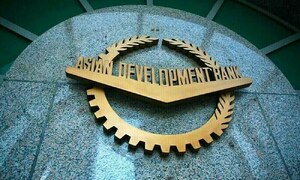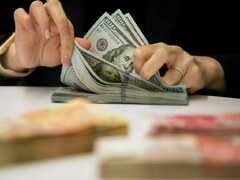A US clampdown on corporate tax reduction schemes - so-called inversions - will further underpin the strength of the dollar. The US government announced proposals in late September to make it harder for American companies to shift their tax bases abroad by acquiring other companies in jurisdictions with lower taxes.
Now the Chicago-based pharmaceutical company AbbVie has said it is reconsidering its $55 billion takeover of London-listed Shire. The announcement wiped $13 billion off Shire's stock price. Other deals have also been put on hold. But the implications of the US government's antipathy towards inversions goes far beyond the pain suffered by equity players who were long of Shire on Tuesday and are now nursing a hefty loss.
Inversion trades by definition see US corporations buying overseas companies, which means converting dollars into local currencies to fund the purchases. The amounts involved are big. Pending inversions, including the AbbVie/Shire proposal, had totalled some $135 billion. The trades are invariably dollar-negative to some degree, with the greenbacks often sourced from the cash US companies hold overseas - held to avoid paying relatively high US taxes.
BR100
15,085
Increased By
112.5 (0.75%)
BR30
44,012
Increased By
987.7 (2.3%)
KSE100
148,618
Increased By
1274.3 (0.86%)
KSE30
45,248
Increased By
370.7 (0.83%)





















Comments
Comments are closed.